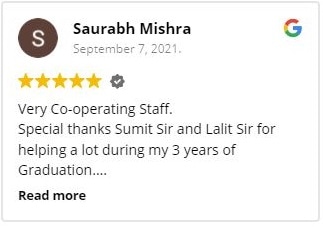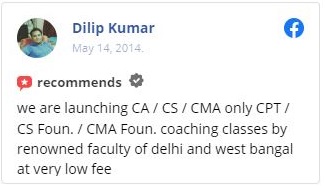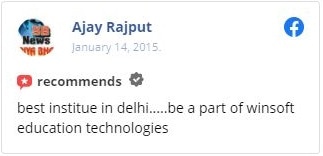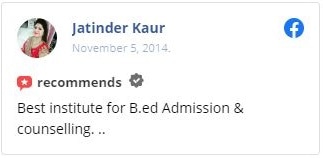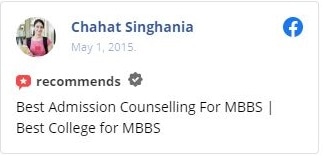SSC (Staff Selection Commission) Online Admission from Top Universities: Eligibility Criteria, Fees, Syllabus, Scope, Duration, and Career Opportunities.
Overview of the Staff Selection Commission (SSC)
The Staff Selection Commission (SSC) is an essential organization under the Government of India, tasked with the recruitment of staff for a variety of positions across different ministries, departments, and subordinate offices. Established in 1975, the SSC focuses primarily on filling Group C (non-technical) and Group B (non-gazetted) posts, which are critical for the smooth functioning of government operations.
The SSC conducts several major examinations, including the Combined Graduate Level (CGL) exam and the Combined Higher Secondary Level (CHSL), aimed at evaluating the skills and capabilities of candidates. These exams encompass a wide range of subjects, ensuring that the selected individuals possess the necessary qualifications and aptitude for their respective roles.
In recent years, the SSC has embraced technological advancements to enhance its recruitment processes. Online application systems and computer-based tests have streamlined operations, making it easier for candidates to apply and participate in examinations.
With a commitment to transparency and fairness, the SSC plays a vital role in providing employment opportunities and shaping a competent workforce within the Indian government. Its efforts significantly contribute to maintaining the integrity and effectiveness of public service in the country.
SSC (Staff Selection Commission): Eligibility Criteria
The eligibility criteria for various examinations conducted by the Staff Selection Commission (SSC) vary depending on the specific exam and the position applied for. However, there are some common requirements that candidates need to meet:
Educational Qualifications:
- Combined Graduate Level (CGL): Candidates must hold a bachelor’s degree from a recognized university.
- Combined Higher Secondary Level (CHSL): Candidates should have passed the 12th grade or equivalent from a recognized board.
- Junior Engineer (JE): A degree or diploma in engineering from a recognized institution is required.
Age Limit:
- The age limit varies by position. Generally, candidates applying for Group B and C posts must be between 18 and 30 years old. Certain positions may have a higher age limit (up to 32 or 35 years) for specific categories, such as SC/ST, OBC, and others.
- The age limit varies by position. Generally, candidates applying for Group B and C posts must be between 18 and 30 years old. Certain positions may have a higher age limit (up to 32 or 35 years) for specific categories, such as SC/ST, OBC, and others.
Nationality:
- Candidates must be Indian citizens, subjects of Nepal/Bhutan, or refugees from Tibet who came to India before January 1, 1962. Other categories may apply for specific posts.
- Candidates must be Indian citizens, subjects of Nepal/Bhutan, or refugees from Tibet who came to India before January 1, 1962. Other categories may apply for specific posts.
Physical Standards:
- Some posts, particularly in the SSC GD Constable exam, have specific physical standards that candidates must meet.
- Some posts, particularly in the SSC GD Constable exam, have specific physical standards that candidates must meet.
Skill Tests:
- For certain positions, candidates may need to clear skill tests (e.g., typing tests for clerical positions).
SSC (Staff Selection Commission): Syllabus
The syllabus for examinations conducted by the Staff Selection Commission (SSC) varies based on the specific exam. Below is a general outline of the syllabus for two major SSC exams: SSC CGL (Combined Graduate Level) and SSC CHSL (Combined Higher Secondary Level).
1. SSC CGL Syllabus
Tier I:
- General Intelligence and Reasoning: Analogies, similarities, differences, spatial visualization, problem-solving, judgment, etc.
- General Awareness: Current events, history, geography, Indian politics, economy, and general science.
- Quantitative Aptitude: Number systems, algebra, geometry, trigonometry, data interpretation, and statistics.
- English Comprehension: Vocabulary, grammar, sentence structure, and reading comprehension.
Tier II:
- Quantitative Abilities: Advanced mathematics, including arithmetic, algebra, geometry, and data interpretation.
- English Language and Comprehension: Detailed understanding of English grammar, vocabulary, and comprehension skills.
Tier III:
- Descriptive Paper: Essay writing, letter writing, and comprehension.
2. SSC CHSL Syllabus
Tier I:
- General Intelligence: Similar to CGL, focusing on logical reasoning and analytical ability.
- General Awareness: Current affairs, history, geography, and basic science.
- Quantitative Aptitude: Basic arithmetic, algebra, geometry, and data interpretation.
- English Language: Vocabulary, grammar, and comprehension.
Tier II:
- Descriptive Paper: Essay and letter writing, testing writing skills and comprehension.
Additional Information
Candidates should also be aware that certain positions may have specific skill tests, such as typing tests for clerical roles.
SSC (Staff Selection Commission): Fees and Duration
Fees
The application fee for SSC exams varies by category:
- General and OBC Candidates: Typically, the fee is around ₹100.
- SC/ST/PWD and Women Candidates: No fee is usually required for these categories.
- Payment Method: Fees can be paid online through various methods (credit/debit cards, net banking) or offline via challan at designated banks.
Duration
The duration of SSC exams depends on the specific exam being conducted:
SSC CGL:
- Tier I: 60 minutes (total of 100 questions).
- Tier II:
- Quantitative Abilities: 120 minutes.
- English Language and Comprehension: 120 minutes.
- Tier III: Descriptive paper typically has a duration of 60 minutes.
SSC CHSL:
- Tier I: 60 minutes (total of 100 questions).
- Tier II: The descriptive paper usually lasts for 60 minutes.
Additional Notes
- Candidates are advised to check the official SSC notification for the exact fee structure and duration, as these can vary by recruitment cycle.
- It’s essential to complete the application process before the deadline, as late submissions may not be accepted.
SSC (Staff Selection Commission): Scope and Career opportunities
Scope
- Diverse Roles: SSC recruits for various positions, including clerical, administrative, and technical roles, allowing candidates from different educational backgrounds to apply.
- Public Sector Employment: Jobs through SSC provide stability, job security, and a chance to serve the public, making them highly sought after.
- Career Growth: Many SSC positions offer clear pathways for advancement, enabling employees to move up the ranks through promotions and departmental exams.
Career Opportunities
Combined Graduate Level (CGL):
- Assistant Section Officer: In various ministries.
- Income Tax Inspector: In the Income Tax Department.
- Excise Inspector: In the Central Board of Indirect Taxes and Customs.
- Tax Assistant: In the Income Tax Department.
- Other administrative positions in different government departments.
Combined Higher Secondary Level (CHSL):
- Lower Division Clerk (LDC): Clerical roles in various government offices.
- Data Entry Operator (DEO): In departments requiring data management.
- Postal Assistant: In the postal department.
Junior Engineer (JE):
- Positions in various engineering departments, including civil, mechanical, and electrical engineering roles.
- Positions in various engineering departments, including civil, mechanical, and electrical engineering roles.
Constable and Sub-Inspector Positions:
- Through SSC GD (General Duty) exams, candidates can join the paramilitary forces and police departments.
- Through SSC GD (General Duty) exams, candidates can join the paramilitary forces and police departments.
Benefits of Working with SSC
- Attractive Pay Scale: Government jobs typically offer competitive salaries along with allowances and benefits.
- Job Security: Public sector jobs are known for their stability compared to private sector positions.
- Work-Life Balance: Generally, government jobs come with regular working hours and ample vacation time.
- Retirement Benefits: SSC employees are entitled to pension schemes and retirement benefits, adding to long-term financial security.




